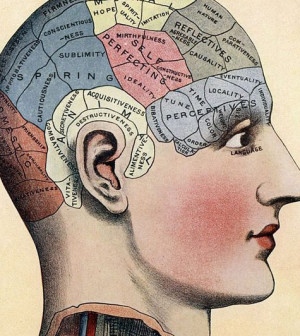- Double Mastectomy May Offer No Survival Benefit to Women With Breast Cancer
- Toxic Lead Found in Cinnamon Product, FDA Says
- Certain Abbott Blood Sugar Monitors May Give Incorrect Readings
- Athletes Can Expect High Ozone, Pollen Counts for Paris Olympics
- Fake Oxycontin Pills Widespread and Potentially Deadly: Report
- Shingles Vaccine Could Lower Dementia Risk
- Your Odds for Accidental Gun Death Rise Greatly in Certain States
- Kids From Poorer Families Less Likely to Survive Cancer
- Tough Workouts Won’t Trigger Cardiac Arrest in Folks With Long QT Syndrome
- At-Home Colon Cancer Test Can Save Lives
Skilled Typing May Rely on More Than Knowing the Keys


Highly adept typists actually have trouble identifying positions of many of the keys on a standard QWERTY keyboard, researchers say, suggesting there’s much more to typing than rote learning.
The new study “demonstrates that we’re capable of doing extremely complicated things without knowing explicitly what we are doing,” lead researcher Kristy Snyder, a Vanderbilt University graduate student, said in a university news release.
She and her colleagues asked 100 people to complete a short typing test. They were then shown a blank keyboard and given 80 seconds to write the letters within the correct keys. On average, these participants were proficient typists, banging out 72 words per minute with 94 percent accuracy.
However, when quizzed, they could accurately place an average of only 15 letters on the blank keyboard, according to the study published in the journal Attention, Perception, & Psychophysics.
The researchers weren’t surprised that the participants did so poorly identifying specific letters on a blank keyboard. Scientists have long known about “automatism” — the ability to perform actions without conscious thought or attention. These types of behaviors are common in everyday life and range from tying shoelaces and making coffee to assembly-line work, riding a bike and driving a car.
It was assumed that typing also fell into this category, but it had not been tested.
On the other hand, the researchers were surprised to find that typists never appear to memorize key positions, not even when they are first learning to type.
“It appears that not only don’t we know much about what we are doing, but we can’t know it because we don’t consciously learn how to do it in the first place,” study supervisor Gordon Logan, a professor of psychology, said in the news release.
More information
The U.S. National Institute of Neurological Disorders and Stroke looks at learning disabilities.
Source: HealthDay
Copyright © 2024 HealthDay. All rights reserved.










